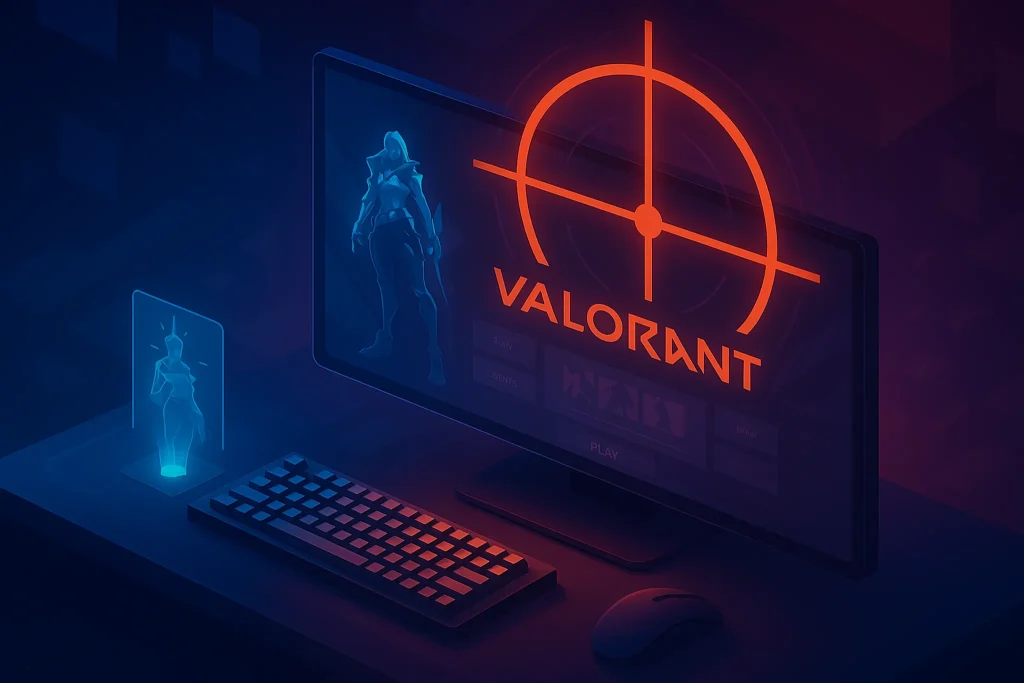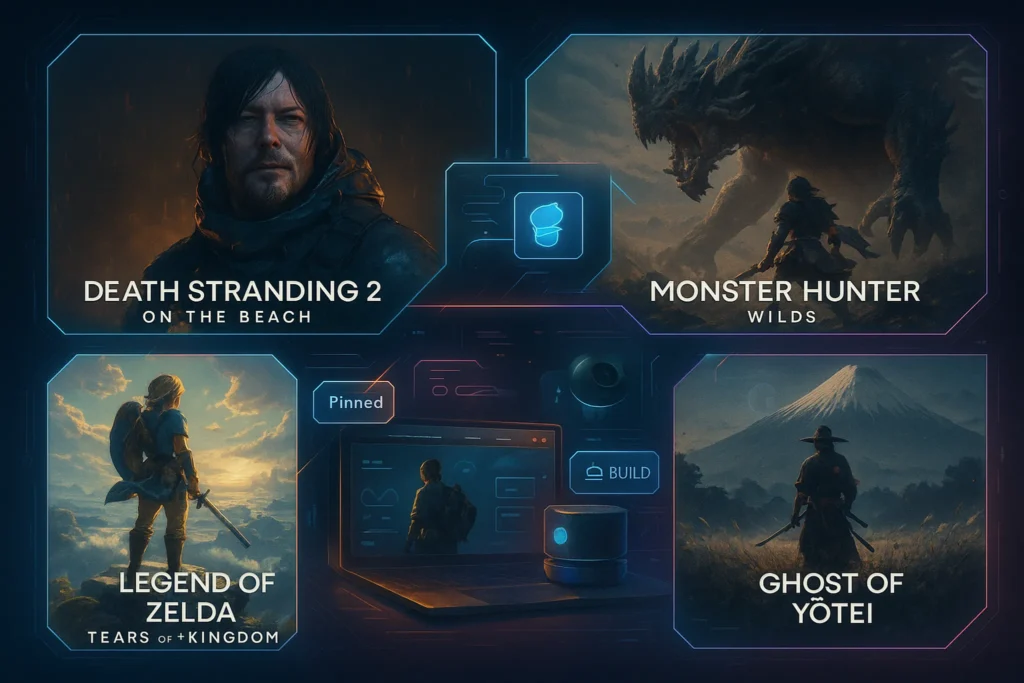🌍 Introduction: From Gamer to Game Maker
If you’ve ever sat through the credits of your favorite game and thought, “I wish I could make something like that,” you’re not alone. The barrier to entry in game development has never been lower. Today, tools exist that let absolute beginners—without coding backgrounds—bring their ideas to life. Whether it’s a simple pixel RPG, a 3D prototype, or even a multiplayer experience, you don’t need a AAA studio. You just need curiosity, persistence, and the right starting tools.
At NerdChips, we’ve covered gaming from indie hits to the AI revolution in gaming. But this guide is different: it’s for dreamers at the starting line. We’ll explore tools that turn inspiration into playable reality.
🧩 Unity with Visual Scripting: Power Without Code
Unity is one of the most popular engines in the world, powering titles from small indie gems to global hits. Traditionally, it required coding in C#. But Unity’s Visual Scripting (formerly Bolt) lowers the barrier dramatically. Instead of writing lines of code, you connect logic blocks visually—like building with Lego.
For a beginner, this is a revelation. Imagine dragging a “Move Character” block, connecting it to a “Key Press” block, and watching your sprite come alive. Visual scripting isn’t limiting, either. Many developers start with it and later transition to code once they grasp logic fundamentals.
Real-world creators back this up. On X, a first-time developer shared:
“Made my first Unity prototype in 3 days with visual scripting. Didn’t touch code once. Mind blown.”
Unity also shines in cross-platform export. Build once, and you can publish to PC, mobile, even consoles. If your dream is scalability, Unity is a safe bet.
Nerd Tip 🧩 Start small. A basic platformer or puzzle prototype in Unity will teach you more than any tutorial binge.
🌀 Godot Engine: Open Source Freedom
Godot has surged in popularity, especially after Unity’s controversial licensing changes in 2023. It’s lightweight, completely free, and open source—meaning the community shapes its growth. Godot uses GDScript, a Python-like language designed for accessibility. But here’s the catch: it also has visual scripting for true beginners.
One of Godot’s biggest strengths is its node-based architecture. Every element—sprite, sound, collision—is a node you can snap together. This modularity makes it intuitive. Beginners often find themselves iterating faster than expected.
For indie devs wary of licensing fees, Godot is liberating. You own your game outright, with no royalties. According to itch.io’s 2024 stats, Godot-powered submissions grew by 72% year-over-year, proving its grassroots traction.
Nerd Tip 🌀 If you value community and independence, Godot may fit better than big-engine ecosystems.
🏰 RPG Maker: Instant Storytelling
Not everyone wants to master 3D physics or AI behavior trees. Some just want to tell a story. RPG Maker has been the gateway for thousands of narrative-driven developers. It comes with built-in sprites, tilesets, and combat systems—letting you focus on characters, dialogue, and quests.
Classic indie RPGs like To the Moon were made with RPG Maker, proving it’s more than a toy. For storytellers, it’s arguably the fastest route from idea to playable demo. You can map towns, write branching dialogues, and test in real time.
The downside? You’re limited to RPG-style mechanics unless you heavily customize. But for beginners, those constraints are actually a gift: fewer distractions, more focus on storytelling.
Nerd Tip 🏰 Use RPG Maker as a writing canvas. If you can’t code but have a story to tell, this tool removes excuses.
🌐 Core: Game Dev Meets Social Platform
Core is both an engine and a platform. Think of it as Roblox for an older audience. You build games with user-friendly tools, publish them instantly, and they’re playable by millions inside Core’s ecosystem.
The advantage? Instant audience. Unlike Unity or Godot, where you must distribute your game yourself, Core has a built-in player base. Aspiring devs often find satisfaction from immediate feedback—watching strangers play their creations within hours.
Core also uses Unreal Engine tech under the hood, so visuals are polished. For a beginner wanting quick wins and social validation, it’s hard to beat.
One developer on Reddit said:
“Built my first multiplayer shooter in Core in two weeks. People were playing it before I even fixed the bugs.”
Nerd Tip 🌐 If motivation is your biggest barrier, start where the audience is. Core’s community ensures your work gets seen.
⚡ Ready to Start Building Your First Game?
Explore Unity, Godot, RPG Maker, and Core. Whether you want scalability, freedom, storytelling, or community, there’s a tool waiting for you.
🎯 How to Pick the Right Tool
Choosing your first engine depends on your goal more than your technical skill. If you dream of commercial success, Unity’s ecosystem and export options matter. If you value independence, Godot keeps you free. If you’re a storyteller, RPG Maker accelerates your path. And if you crave instant feedback, Core’s social model fits.
Think of it like building a PC. In our gaming PC guide, we emphasized balancing components. The same applies here: balance your vision with your tool’s strengths.
Nerd Tip 🎯 Don’t get paralyzed by options. Pick one tool, commit for 30 days, and build something small. That first win fuels the rest.
🔮 The Future: AI and Game Development
AI is already transforming development. Tools like ChatGPT plug-ins generate dialogue trees, MidJourney concepts fuel art assets, and procedural generation fills levels. In our piece on AI in video production, we showed how automation saves time. The same applies here: AI helps beginners skip repetitive tasks and focus on creativity.
Soon, visual scripting may evolve into natural language scripting. Instead of connecting blocks, you’ll type, “Make the enemy chase the player but stop if health is low,” and an AI will generate the behavior. This lowers barriers further, expanding the developer pool.
Nerd Tip 🔮 AI won’t replace creativity—it amplifies it. Your ideas still matter most.
📬 Want More Game Dev Tips?
Join the NerdChips newsletter for beginner-friendly guides on game engines, design, and AI-powered creativity. Start your journey with insider insights.
🔐 100% privacy. Just actionable game dev insights from NerdChips.
🌐 Learning Curve & Community Support
Picking a tool isn’t just about features—it’s about the ecosystem around it. Beginners often underestimate how much community support impacts learning. Unity, for instance, has perhaps the largest game dev community in the world. Thousands of free tutorials, Discord servers, and YouTube channels exist solely to help newcomers get unstuck. That means if you run into a problem, chances are someone else has already solved it.
Godot, while smaller, benefits from its open-source DNA. Its community is incredibly engaged, with contributors constantly improving the engine. Forums and GitHub discussions feel collaborative, and many beginners report receiving personalized help within hours. RPG Maker, on the other hand, has decades of history. Its forums and resource packs are treasure troves for storytellers who want to share tilesets, music, and plugins. Core offers something unique: an active social player base that doubles as your tester community. Publish a prototype, and within hours you’ll have strangers giving feedback—something that’s hard to replicate on standalone engines.
The right tool, then, isn’t just about tech. It’s about finding a learning environment where you’ll feel encouraged rather than isolated.
Nerd Tip 🌐 Before committing, join the Discord or forum of your chosen engine. If the vibe feels welcoming, you’ve found the right place to grow.
💸 Monetization & Publishing Paths for Beginners
For many aspiring developers, making a game is only half the dream. The other half is sharing it—and maybe even earning from it. Thankfully, modern tools make publishing accessible even for first-timers.
Platforms like itch.io are perfect for beginners. They allow you to publish free or paid games instantly, collect donations, and build a fan base. Steam, while more competitive, is also within reach thanks to Steam Direct, which lets indies publish for a small fee. Mobile platforms (Google Play and App Store) offer another entry point, though they often require more polish and marketing to stand out.
Even RPG Maker games have found commercial success, with titles like To the Moon starting as small narrative projects before gaining global acclaim. Unity and Godot games routinely make it onto consoles through publisher partnerships. In other words, “beginner-friendly” doesn’t mean “just practice.” Your first project could become something real.
Beyond direct sales, monetization paths include ads for mobile games, Patreon support for ongoing projects, and even bundle sales on platforms like Humble Bundle. In a 2024 Gamasutra survey, nearly 40% of indie developers reported making at least $1,000 from their first published project, showing that entry-level doesn’t mean zero impact.
Nerd Tip 💸 Start by publishing on itch.io. It’s free, supportive, and lets you test whether your game resonates before scaling to bigger platforms.
⚠️ Common Beginner Mistakes & How to Avoid Them
Every new developer stumbles—but knowing common pitfalls helps you sidestep discouragement. The biggest mistake? Starting with an over-ambitious project. Many beginners set out to make the next open-world RPG or competitive shooter, only to burn out halfway. The smarter approach is to start tiny: a single level, a puzzle, or a short narrative experience. Completing something small builds confidence and teaches fundamentals.
Another frequent mistake is neglecting playtesting. Beginners often assume their design makes sense because it makes sense to them. But games live or die by player experience. Without testing, you miss critical feedback about difficulty, pacing, or even whether mechanics are fun. Even a handful of friends trying your prototype can reveal insights you’d never see alone.
The third mistake is “engine hopping.” Beginners sometimes jump from Unity to Godot to Unreal, thinking the tool is the problem. In reality, the problem is unfinished projects. Each switch resets your progress. It’s better to stick with one tool until you’ve completed at least one playable project.
Nerd Tip ⚠️ Finish something—even if it’s rough. A completed small game teaches more than a half-finished epic.
🧠 Nerd Verdict
Game development no longer belongs to big studios. With beginner tools like Unity, Godot, RPG Maker, and Core, anyone can step into the role of creator. The learning curve exists, but it’s gentler than ever.
At NerdChips, our verdict is simple: if you’ve ever dreamed of making a game, now is the time. The tools are ready, the communities are welcoming, and your creativity is the only missing piece.
❓ Nerds Ask, We Answer
💬 Would You Bite?
What’s your dream game idea—and which of these beginner tools would you try to bring it to life?



